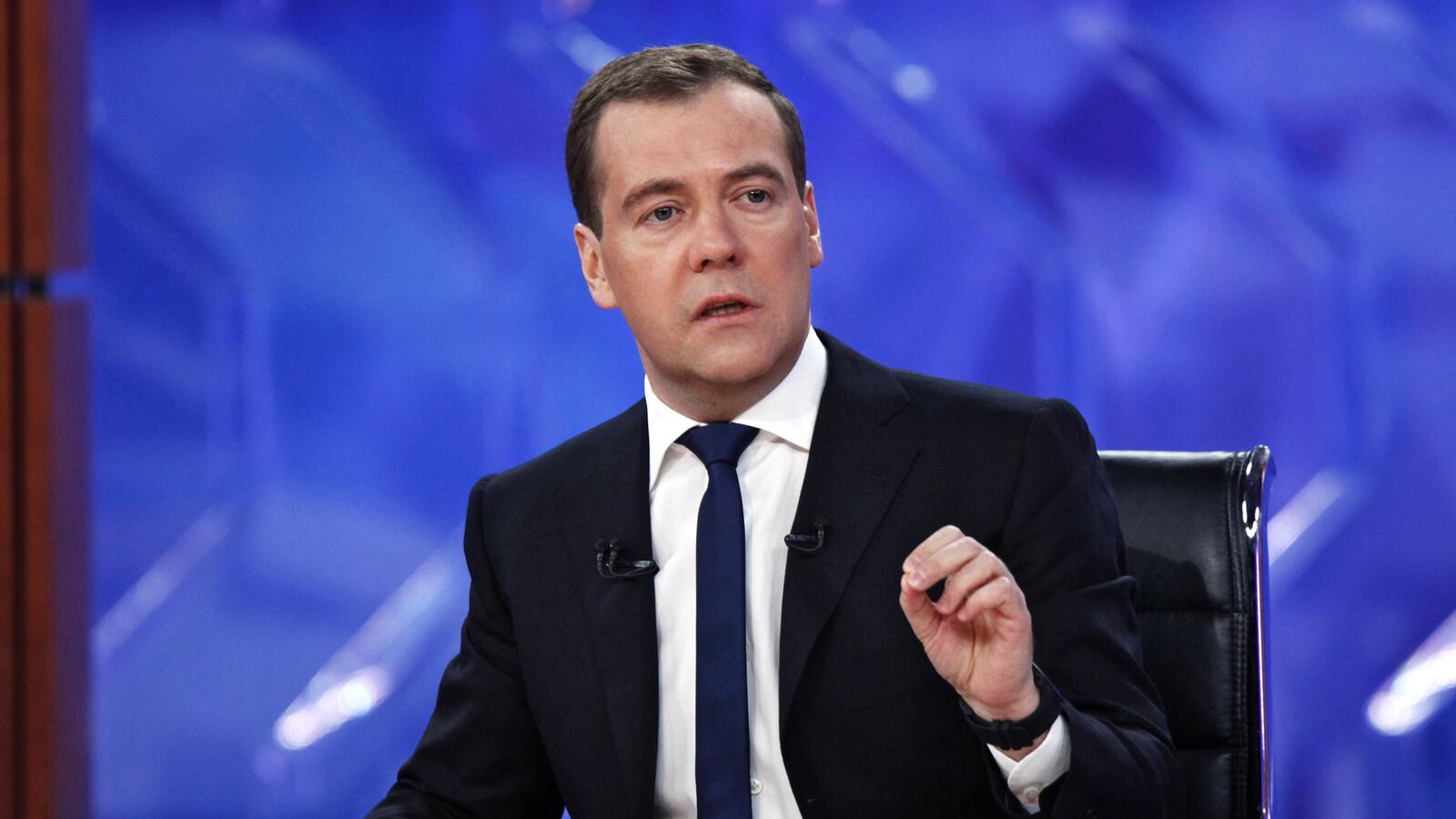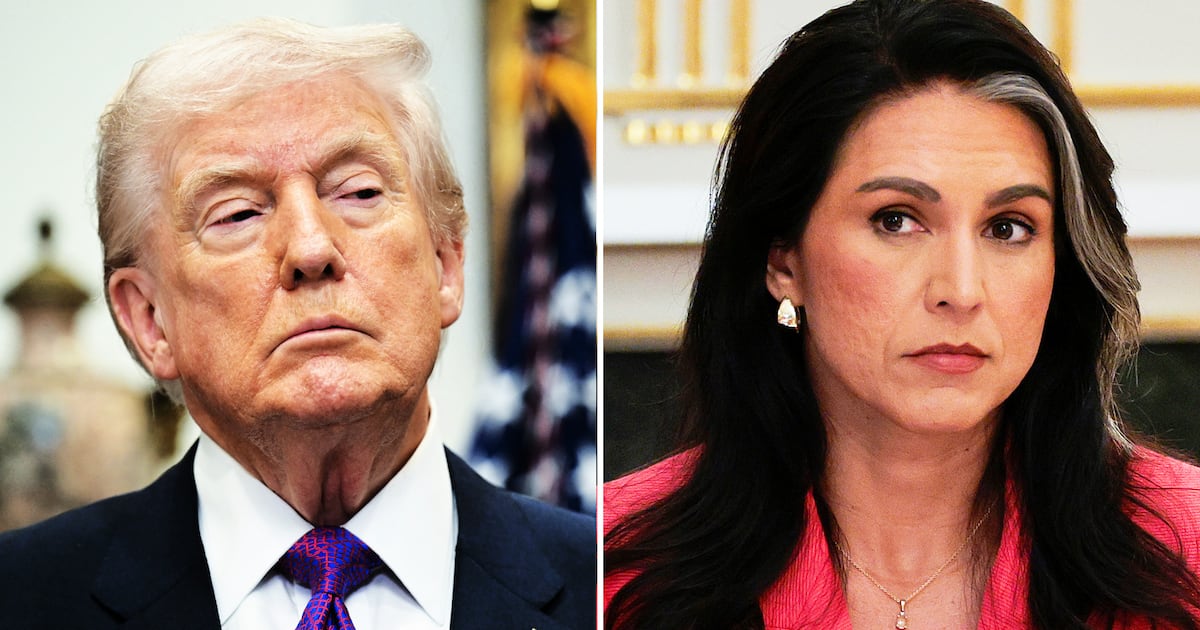To prepare for the approaching end of the world—a.k.a. the Mayan calendar’s doomsday on Dec. 21—Russian shoppers are clearing out the store shelves in the country’s far north and east, the first places that the apocalypse will supposedly hit. (That fateful moment is known to believers as the time when “the planet enters the Zero Stage,” a total blackout.) The end-timers are buying vodka, of course. They’re also stocking up on matches and candles, which have been going for three to four times the normal rate and have practically disappeared from stores in the cities of Chita and Krasnoyarsk. Even skeptics are stocking up on a few extra kilos of buckwheat, pasta, oatmeal, rice, and salt “for the black day.”

Authorities, meanwhile, are trying to calm the public paranoia. Last week, Prime Minister Dmitry Medvedev felt the need to reject the Mayan cosmology. “I do not believe in the end of the world,” he emphasized. “At least, not this year.” And earlier this month Russia’s minister of Emergency Situations, Vladimir Puchkov, assured Russians that there was no reason to panic. He had, he promised “access to methods of monitoring what is occurring on the planet Earth” and could say with certainty that the end doesn’t appear to be nigh. But apparently, the promises of officials are not comforting to everybody. Almost one third of Russia’s population is still concerned about the dire predictions, according to a report from the social polling firm the Levada Center.
Members of Parliament blame the media for creating a sense of panic. Last month, officials addressed a letter to the directors of all the state-run channels, asking them to cancel the end-of-world coverage. The fearmongering of such a “pseudo-scientific phenomenon” was causing real health problems for many Russians, they said. The channels ignored the deputies, and one outlet even aired a show called Apocalypse: Unfriendly Universe several times a week. The author of the letter, Mikhail Degtiarev, complained about the program on a talk show, and predicted that the media itself would cause social collapse before the end of the year. “Instead of talking about how to clear snow—which I thought would be the topic under discussion—this popular but irresponsible TV channel dedicated the show to the same insane end-of-the-world [nonsense],” he complained. “My theory is that affirmations turn to reality. I would not be surprised to see a collapse this month, just because the theme has been distorting people’s psychology so often.”
Russian state television and the Internet have also taken to quoting a Tibetan lama—known as the “Oracle of Shambhala”—who allegedly predicted a two-week-long time of “complete darkness and silence” in an October address. State channels have also taken to airing daily shows devoted to the world’s worst disasters, and news websites are publishing helpful survival recommendations—among them, “move to a country house and make sure you have a stove, plenty of water, and firewood.” (Most people in Russia have country homes, called dachas, with underground storage for canned vegetables and fruit.) A popular website, which has a clock counting down the days, minutes, and seconds until Zero Stage, urges, “Do not wait, get prepared!” The site’s creators also provide a list of food items necessary for surviving the apocalypse.
Moscow businessman Valentin Sveridov, 45, decided not to wait for the first signs of the apocalypse before evacuating his wife and 7-year-old son from Moscow. He read on the Internet that the capital would be the most terrifying place to stay during the inevitable natural disasters. “Rivers of blood, hundreds of rotting dead bodies, and deadly epidemics,” he explained. Sveridov suggested that the family move to the home of his childhood friend Alexander, who has a nice dacha outside of St. Petersburg. They’re going to get out of Moscow for a few days, “just in case.”
This is not the first time that the two friends have helped each other survive. During the years of post-perestroika inflation in 1993–96, when the two young entrepreneurs lost all the rubles in their savings accounts, they helped each other begin a new life. “Russians are made to survive,” Sveridov said, opening his car trunk to show off an extra can of gas stashed there. “We are used to living on the verge of apocalypse—they turn the electricity off almost every day in my home village in the far east.”
Vodka helped back in the early days after the Soviet collapse. “Our rubles had no value, but our vodka bottles were always good to pay for everything,” Sveridov said. Come hell or high water, he’s certain of one thing: vodka will remain the true currency of Russia.
Indeed, this is hardly the first time that Russians have been faced with the prospect of extinction. Older generations still remember the bitter cold winters in Stalin’s gulags, as well as the mass murders and the desperate hunger of the Second World War. But the apocalypse talk may be so popular these days because it appeals to a deeper search for meaning afoot among young Russians. In search of paradise, tens of thousands of Russians flock to the Indian state of Goa each year, or to ecologically friendly communities in the Altai and Ural mountains, or deep in the Siberian taiga. Meditation and yoga have become wildly popular in Moscow. And New Agers are flocking from the cities to the wilderness in search of salvation. “It takes years of spiritual work to save one’s soul,” says Yevgenia Pystina, a former doctor in Novosibirsk who moved 70 miles away from “hostile city life” with her husband and two daughters to the Land of Plenty commune on the Ob River. “Our commune is the best ark for surviving disasters,” she said.
Still, with so many Russians refusing to treat the supposed apocalypse seriously and not stocking up on supplies, industrious entrepreneurs are springing up with special offers. Pussy Riot member Yekaterina Samutsevitch, who was recently released from jail, received a phone call not long ago with an offer for a ticket to a high-security bunker. “Somebody, who introduced himself as a member of the Last Day church, offered me one entry ticket onto an ark-bunker if I want to survive the apocalypse,” she said. She told the seller she needed to think it over, but she has no interest in hiding away. “One day, the apocalypse will come to all of us—we’re all going to die,” she reflected. “I prefer to have some fun before that happens.”
Reporting for this article was made possible by a grant from the Pulitzer Center on Crisis Reporting.






